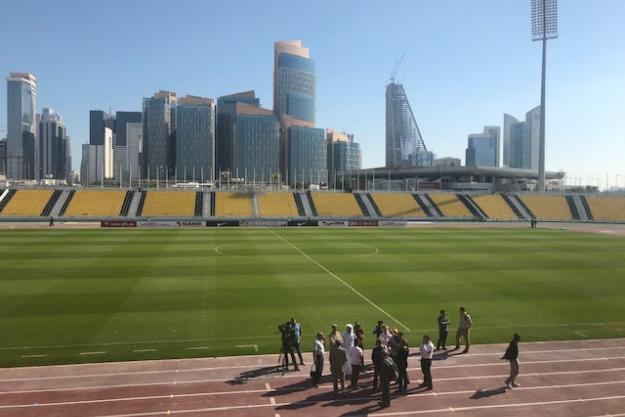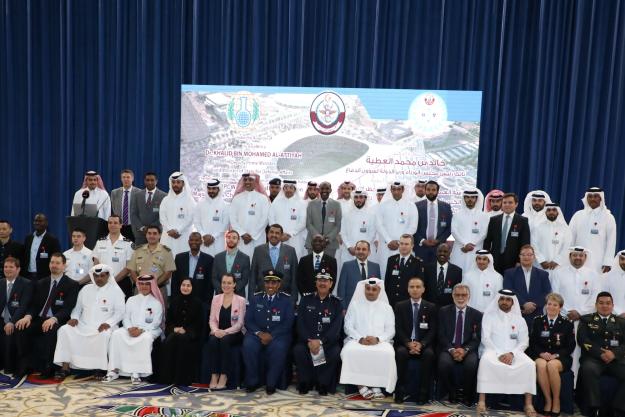
Participants at the International Workshop on Chemical Emergency Planning and Preparedness for Major Events
THE HAGUE, Netherlands — 14 December 2018 — The Organisation for the Prohibition of Chemical Weapons (OPCW) assisted the Qatari first responders gain skills in handling chemical emergencies before FIFA 2022 World Cup, during the International Workshop on Chemical Emergency Planning and Preparedness for Major Events held from 11 to 13 December in Doha.
Opening the event, Chairman of the National Committee for the Prohibition of Weapons of the State of Qatar, Brigadier Hassan Saleh Al-Nesf, noted his appreciation for OPCW’s support in building preventive capabilities of its Member States, and for encouraging cooperation and the exchange of best practices related to protection against chemical weapons.
OPCW’s Senior Programme Officer, Ms Ditta Ciganikova, expressed her hope that the workshop “will help plan and prepare the Qatari chemical emergency response for the FIFA World Cup” that will be held in Qatar in November and December 2022.
This was the first-ever workshop organised by the OPCW that focused on a wide range of aspects pertaining to chemical emergency protection during major events, with stakeholders sharing experiences and lessons learned related to interagency coordination and cooperation, training, procedures, monitoring, and technical preparation for major events.
In attendance were 40 representatives from various Qatari agencies such as the military, police, civil defence, Red Crescent, industry, and customs involved in the preparation of emergency response teams for the World Cup.
In addition, 21 international experts from 17 OPCW Member States participated. They represented OPCW Member States who have already hosted major international sporting events – such as Brazil, Czech Republic, Germany, and Malaysia – as well as countries which plan to host such events in the future.
The participants further conducted a threat and risk assessment of a major football stadium, and developed a set of custom-made chemical emergency responses to ensure public safety and security.
The workshop, co-organised by the OPCW Technical Secretariat and the National Committee for the Prohibition of Weapons of the State of Qatar, was hosted and funded by the State of Qatar.

Background
As the implementing body for the Chemical Weapons Convention, the OPCW, with its 193 Member States, oversees the global endeavour to permanently eliminate chemical weapons. Since the Convention’s entry into force in 1997, it is the most successful disarmament treaty eliminating an entire class of weapons of mass destruction.
Over 96% of all chemical weapon stockpiles declared by possessor States have been destroyed under OPCW verification. For its extensive efforts in eliminating chemical weapons, the OPCW received the 2013 Nobel Peace Prize.
